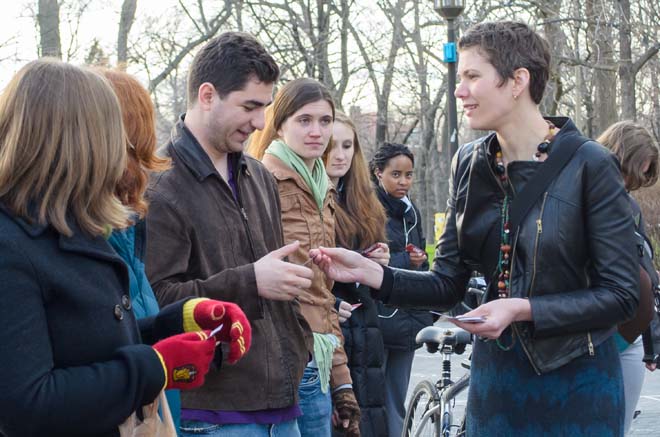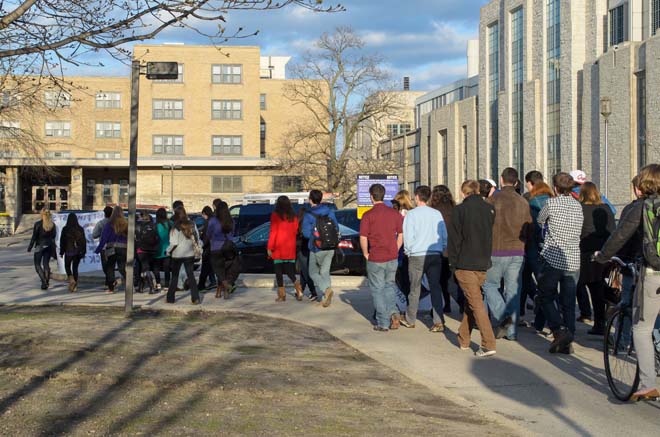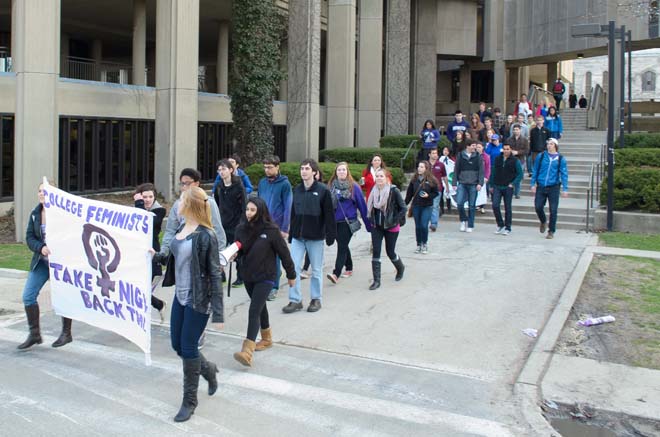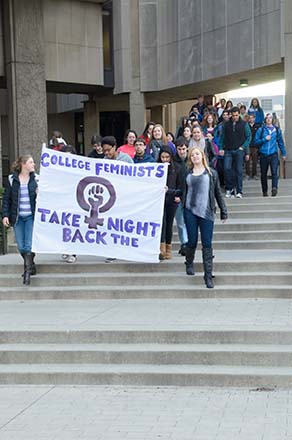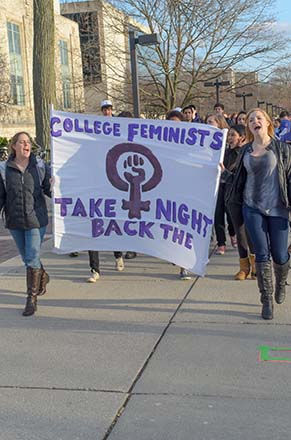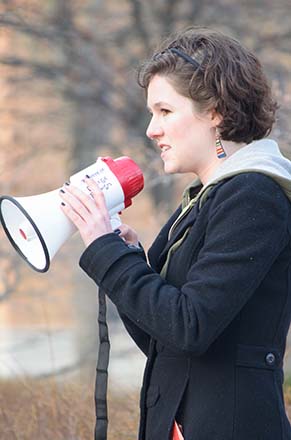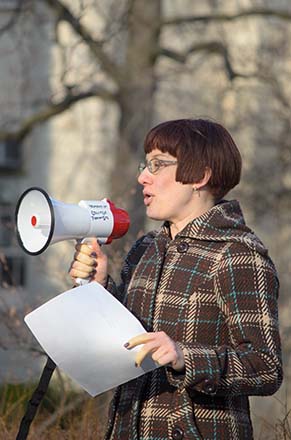“Yes means yes, no means no. Whatever we wear, wherever we go.”
These words echoed around campus Thursday night as members of the Northwestern community marched against sexual violence at the annual Take Back the Night Rally.
Before the rally, supporters gathered at the Women’s Center for a barbecue. An open and confidential space where survivors could share their stories known as a “Speak Out” immediately followed the march at Dittmar Gallery.
Students and faculty agreed that the Northwestern campus is not immune to sexual assault. “We live in such a sex-negative culture, and that contributes to sexual violence,” said Marcel Byrd, SESP sophomore and member of Sexual Health and Assault Peer Educators. Byrd said he believes that many students simply do not know how to correctly ask for consent.
Laura Shultz, a Weinberg senior, said she is disappointed by the rarity of public discussions of sexual assault at Northwestern. “It is not as much of an open issue as it is at, say, University of North Carolina, but it definitely occurs on our campus,” Schultz said. “I think it might just be a quieter presence.”
Laura Anne Stuart, coordinator of sexual health education and violence prevention at the Center for Awareness, Response & Education, said this “quiet presence” is due to how overwhelmingly widespread sexual violence is. According to Stuart, a survey her office conducted in 2011 found that around 10 percent of Northwestern students reported to have been sexually assaulted.
“It’s so big that people don’t even see they’re living in it,” Stuart said. She added that this is particularly devastating for sexual assault and relationship violence activists who strive to make change.
“One of the things unique to a college campus is when people come here, they expect to be safe. They expect to be able to trust other people,” she said. “I think that if you are a sexual predator, you can take advantage of that.”
But Stuart said she believes change is not impossible, as evidenced in what has happened on campus so far. Eva Ball, the coordinator of sexual violence response services and advocacy for CARE, recently wrote the Sexual Assault Response Protocol, training Northwestern staff and students on how to effectively respond to survivors who reach out to them. The Interfraternity Council and the Panhellenic Association also recently mandated that every pledge class attend sexual assault education trainings from SHAPE and Men Against Rape and Sexual Assault. Stuart also works as the faculty adviser for these groups.
“It’s really important for people to take the time once a year to step out of their normal space and recognize that no campus is immune to sexual violence,” Stuart said, “and that survivors are never alone.”
